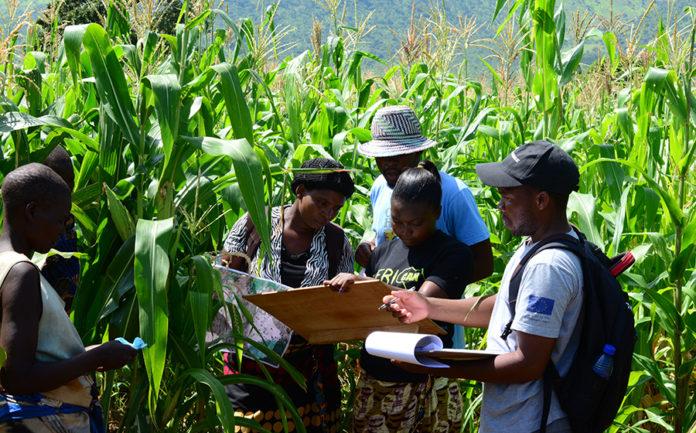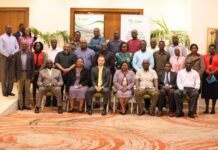Malawi’s population is primarily rural, with most of the agricultural sector comprising farmers cultivating small, rain-fed plots intended to grow food for their own consumption. With a rapidly increasing population, the pressure on Malawi’s land and natural resources is high, particularly for smallholder farmers.
Historically, land rights—and hence the ability to sustainably manage land—in Malawi have been hampered by unequal land distribution, weak land registration and administration systems, and poor recognition of women’s rights to land. But that is changing thanks in part to assistance from the European Union (EU).
Since the mid-1990s, Malawi has been taking measures to address land issues. The government’s 2011–16 Growth and Development Strategy II highlighted the need to promote land ownership and title registration, decentralise land administration functions, raise public awareness regarding land laws, develop a geospatial database, and establish planning standards.
In 2002, Malawi published its National Land Policy, considered key to land reform. It was also the basis for 10 new or amended land laws enacted in 2016—which is when DAI entered the picture.
From Policy to Implementation
In 2016, DAI was awarded the EU-supported Land Governance Project to provide technical assistance and guidance for the implementation of new land laws and the overall land governance framework. In parallel, a consortium of civil society organisations (Oxfam, CEPA, and LandNet) set out to pilot implementation of the Customary Land Act.
The primary purpose of our work in Malawi was to help the government move from policy to implementation and ensure the legislative and institutional environment was such that Malawi could progress with land reform. The ultimate objective was improving livelihoods, particularly in rural Malawi, through sustainable agricultural development.
Today, thanks in part to the EU’s assistance, Malawi’s institutional framework and capacity for land reform are stronger, and smallholder land rights—in particular women’s land rights—are closer to the principles enshrined in the Voluntary Guidelines on the Governance of Tenure (VGGT).
Elements of the Project
Legal review was central to the project. We assisted the Ministry of Land, Housing, and Urban Development (MoLHUD) to identify inconsistencies in the laws, draft regulations, and develop a Land Reform Implementation Plan focusing on the pilot phase of land reforms.
In addition, we provided the civil society consortium with wide-ranging support for the Customary Land Act pilots, including:
- Raising public awareness
- Educating the authorities and general public about the new laws
- Adjudicating and demarcating parcel boundaries using low-cost surveying methods
- Publicly displaying provisional results
- Issuing customary estate certificates to landholders
- Registering land rights in new district land registries
Other support included:
Read more : Dai-Global









